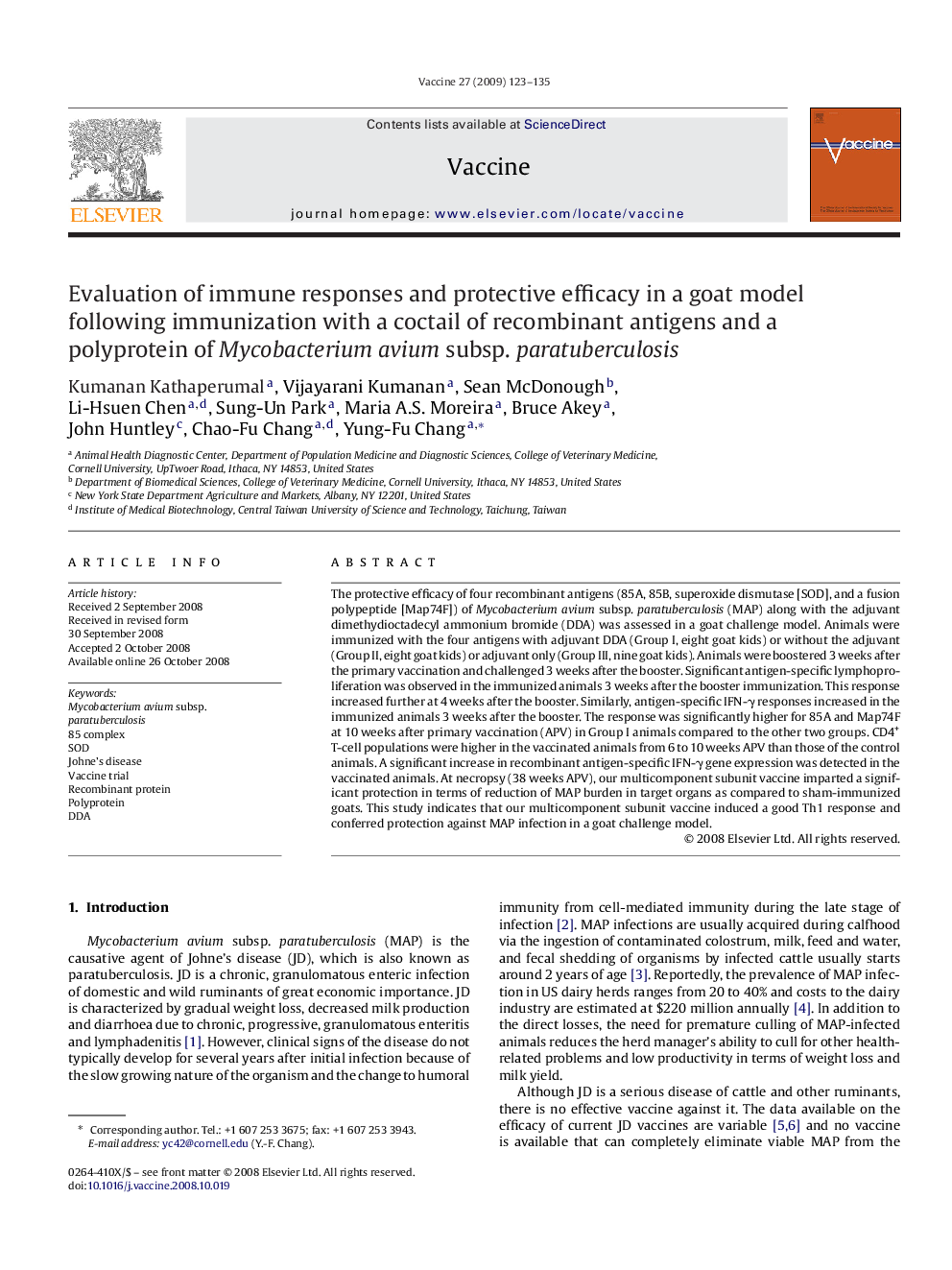| Article ID | Journal | Published Year | Pages | File Type |
|---|---|---|---|---|
| 2406712 | Vaccine | 2009 | 13 Pages |
The protective efficacy of four recombinant antigens (85A, 85B, superoxide dismutase [SOD], and a fusion polypeptide [Map74F]) of Mycobacterium avium subsp. paratuberculosis (MAP) along with the adjuvant dimethydioctadecyl ammonium bromide (DDA) was assessed in a goat challenge model. Animals were immunized with the four antigens with adjuvant DDA (Group I, eight goat kids) or without the adjuvant (Group II, eight goat kids) or adjuvant only (Group III, nine goat kids). Animals were boostered 3 weeks after the primary vaccination and challenged 3 weeks after the booster. Significant antigen-specific lymphoproliferation was observed in the immunized animals 3 weeks after the booster immunization. This response increased further at 4 weeks after the booster. Similarly, antigen-specific IFN-γ responses increased in the immunized animals 3 weeks after the booster. The response was significantly higher for 85A and Map74F at 10 weeks after primary vaccination (APV) in Group I animals compared to the other two groups. CD4+ T-cell populations were higher in the vaccinated animals from 6 to 10 weeks APV than those of the control animals. A significant increase in recombinant antigen-specific IFN-γ gene expression was detected in the vaccinated animals. At necropsy (38 weeks APV), our multicomponent subunit vaccine imparted a significant protection in terms of reduction of MAP burden in target organs as compared to sham-immunized goats. This study indicates that our multicomponent subunit vaccine induced a good Th1 response and conferred protection against MAP infection in a goat challenge model.
